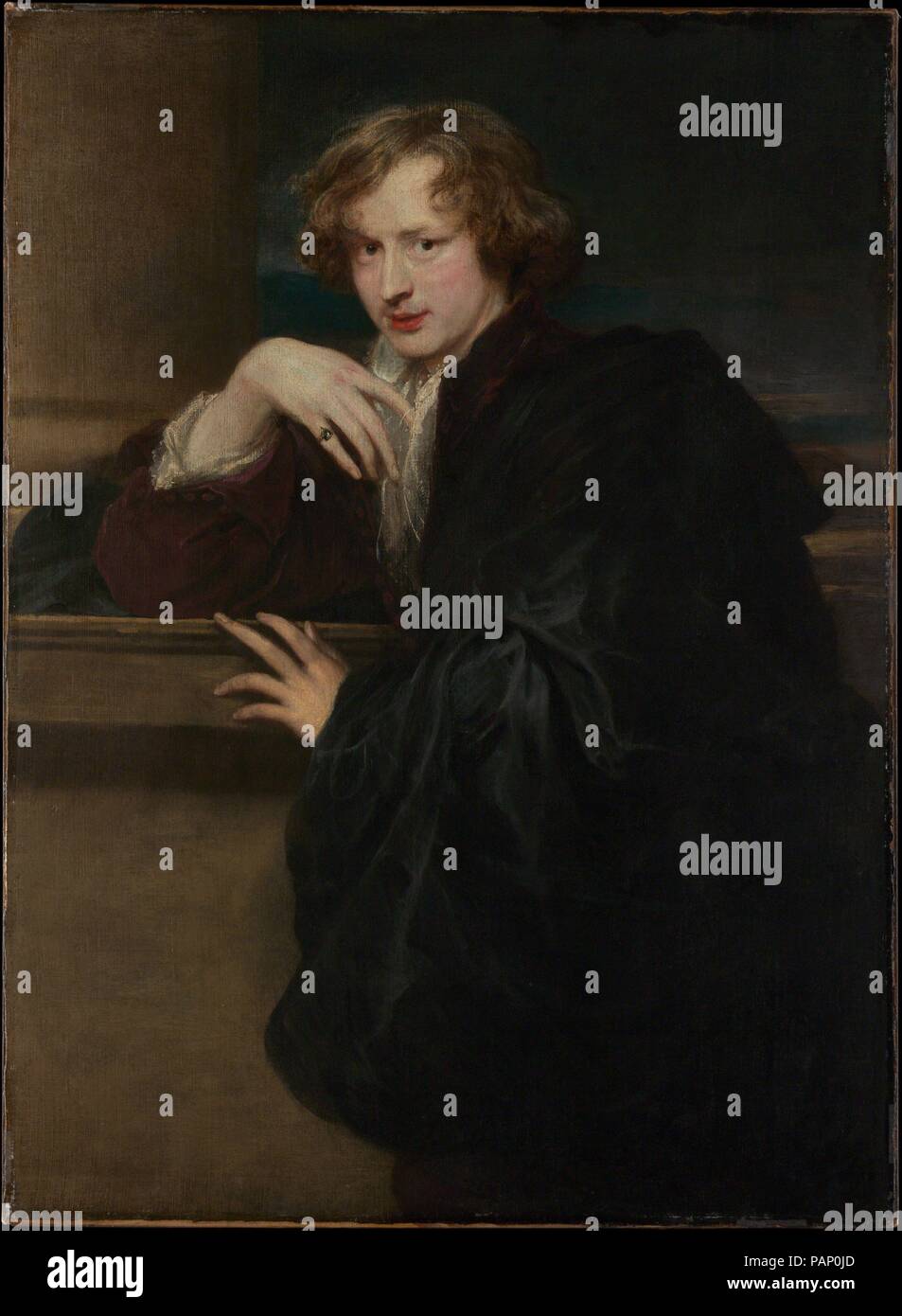Self-Portrait. Artist: Anthony van Dyck (Flemish, Antwerp 1599-1641 London). Dimensions: 47 1/8 x 34 5/8 in. (119.7 x 87.9 cm). Date: ca. 1620-21. The young Van Dyck presents himself as a courtly gentleman, with no reference to his profession other than the painting itself. The portrait probably dates from the artist's stay in London during the winter of 1620-21, and certainly before he left his native Antwerp for Italy in autumn 1621. That Van Dyck's father dealt in fine fabrics partly explains his predilection for rich attire (which was remarked by Bellori, an early biographer) and perhaps

Image details
Contributor:
Album / Alamy Stock PhotoImage ID:
PAP0JDFile size:
36.5 MB (1.4 MB Compressed download)Releases:
Model - no | Property - noDo I need a release?Dimensions:
3061 x 4173 px | 25.9 x 35.3 cm | 10.2 x 13.9 inches | 300dpiPhotographer:
AlbumMore information:
This image could have imperfections as it’s either historical or reportage.
Self-Portrait. Artist: Anthony van Dyck (Flemish, Antwerp 1599-1641 London). Dimensions: 47 1/8 x 34 5/8 in. (119.7 x 87.9 cm). Date: ca. 1620-21. The young Van Dyck presents himself as a courtly gentleman, with no reference to his profession other than the painting itself. The portrait probably dates from the artist's stay in London during the winter of 1620-21, and certainly before he left his native Antwerp for Italy in autumn 1621. That Van Dyck's father dealt in fine fabrics partly explains his predilection for rich attire (which was remarked by Bellori, an early biographer) and perhaps his elegant descriptions of drapery. Museum: Metropolitan Museum of Art, New York, USA.